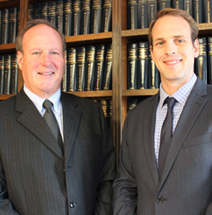Nursing Home Injuries
In recent years, our media has highlighted nursing home injuries. It is an alarming and ongoing concern to the public. To meet this concern, state and federal laws have been passed to protect patients in healthcare facilities. Patients have specific rights that must be met by facilities and staff members. When these rights are not met and individuals are injured, they have the right to pursue compensation against those held legally responsible. Often, family members must make legal claims on behalf of their loved ones. If you or a family member has been injured, it is important to speak to an attorney to learn about your legal options and rights against nursing home abuse.
Rights of Nursing Home Residents
Residents of nursing homes or healthcare facilities are protected by state and federal laws. These laws guard patients against neglect, abuse and other mistreatment, whether physical, nonphysical or mental in nature. These safeguards are often referred to as the Patient Bill of Rights, and provide residents with basic rights to food, clothing, shelter and healthcare. Additional protections also include the right of residents to make their decisions regarding their medical treatment; the right to be fully informed and in control of their finances (unless the individual no longer has capacity to do so); the right to communicate with family members, doctors, other residents and participate in social activities of their choosing; and the right to be made aware of their facility’s administrative process and given access to that process if they so choose. Federal programs — such as Medicare — and state programs also protect residents against abuse and from the use of any physical or chemical restraint that is not deemed medically necessary. Patients have the right to their own safety. Often, if it is shown that facilities do not abide by these protections, they will not receive federal or state funding.
Parties Responsible for Nursing Home Abuse
If you or a loved one has been harmed in a nursing home, legal action may be possible. A victim of nursing home abuse may follow the facility’s administrative process to file a complaint against the nursing home and/or staff members. The claim will generally be investigated by an adult protective services agency. Alternatively, an action may be filed in civil court for compensation for the injuries suffered by the victim — this is usually a negligence claim. Damages in civil court will be monetary in nature, intended to help compensate injured parties or loved ones for financial, emotional and mental losses. In serious cases, authorities may even take criminal action against the responsible parties.
In most cases, the claim against the nursing home will be for negligent treatment of the resident. Negligence claims may be against a variety of potential defendants, including nursing home employees or staff, or the facility itself. Likewise, negligence claims may differ based on the facts of the situation. Some examples may include negligent treatment of nursing home residents by staff members, negligent hiring of employees by the facility, or negligent maintenance of the facility itself. In addition, there may be criminal claims of assault or battery, or claims of exploitation — taking advantage of patients through undue influence, deception, threats or the individual’s inability to give legal consent (legal incapacity).
Contact a Personal Injury Attorney in Your Area
If you or your loved has been injured while a patient in a nursing home or other healthcare facility, it is important to speak to a knowledgeable attorney to discuss your circumstances, answer your questions and determine the most appropriate legal options in your situation.
Preparing to Meet with Your Personal Injury Attorney
To read and print out a copy of the checklist, please follow the link below.
Preparing to Meet with your Personal Injury Attorney
You can download a free copy of Adobe Acrobat Reader here.
Copyright © 1994-2011 FindLaw, a Thomson Reuters business
DISCLAIMER: This site and any information contained herein are intended for informational purposes only and should not be construed as legal advice. Seek competent counsel for advice on any legal matter.







